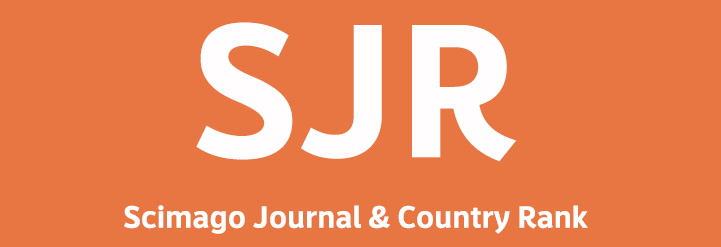Reservoir Simulator For Improved Recovery Of Coalbed Methane (Icbm) Part Ii : Effect Of Coal Matrix Swelling And Shrinkage
DOI:
https://doi.org/10.29017/SCOG.32.3.850Keywords:
swelling, shrinkage, improved recovery of coalbed methane (ICBM), CO2 sequestrationAbstract
Sequestration of CO2 in deep unmined coal seams is currently under development for improved recovery of coalbed methane (ICBM) as well as permanent storage of CO2. Recent studies have shown that CO2 displaces methane by adsorbing more readily onto the coal matrix compared to other greenhouse gases, and could therefore contribute towards reducing global warming. In order to carry out a more accurate assessment of the potential of ICBM and CO2 sequestration, field based numerical simulations are required. Existing simulators for primary CBM (coalbed methane) recovery cannot be applied since the process of CO2 injection in partially desorbed coalbeds is highly complex and not fully understood. The principal challenges encountered in numerical modelling of ICBM/CO2 sequestration processes which need to be solved include: (1) two-phase flow, (2) multiple gas components, (3) impact of coal matrix swelling and shrinkage on permeability, and (4) mixed gas sorption. This part II of this two-part paper series describes the development of a compositional simulator with the impact of matrix shrinkage/swelling on the production performance on primary and echanced recovery of coalbed methane. The numerical results for enhanced recovery indicate that matrix swelling associated with CO2 injection could results in more than an order of magnitude reduction in formation permeability around the injection well, hence prompt decline in well injectivity. The model prediction of the decline in well injectivity is consistent with the reported field observations in San Juan Basin USA. Also, a parametric study is conducted using this simulator to investigate the effects of coal properties on the enhancement of methane production efficiency based on published data.
References
Gray, I., 1987: “Reservoir Engineering in Coal
Semas: Part I – The Physical Process of Gas
Storage and Movement in Coal Seamsâ€, SPE
Reservoir Engineering, February 1987, pg. 28-34.
Harpalani, S. and G. Chen, 1995: “Estimation of
Changes in Fracture Porosity of Coal with Gas
Emissionâ€, Fuel, Vol. 74, p. 1491-1498.
Seidle, J.P. and Huitt L.G., 1995: “Experimental
Measurement of Coal Matrix Shrinkage Due to
Gas Desorption and Implications for Cleat Permeability
Increasesâ€, paper SPE 30010 presented
at 1995 SPE International Meeting on Petroleum
Engineering, Beijing, China, 14-17 November.
Palmer I. and Mansoori J., 1996: “How Permeability
Depends on Stress and Pore Pressure in
Coalbeds: A new Modelâ€, SPE paper 36737 presented
at the 1996 Ann. Tech. Conf., Denver,
Colorado, 6-9 October.
Shi J.Q., Durucan S. and Syahrial E.:â€Reservoir
Depletion Induced Changes in Coalbed Permeability
and Implications for Enhanced CBM Recovery
using CO2 Injectionâ€, Proc. 5th European
Coal Conference, Mons-Frameries, Belgium on
September 17-19, 2002, to be published in
“Geologica Belgicaâ€, Journal of the Geological
Society of Belgium, Brussels.
Shi, J.Q. and Durucan, S., 2003: “Modelling of
Enhanced Methane Recovery and CO2 Sequestration
in Deep Coal Seams: the Impact of Coal
Matrix Shrinkage/Swelling on Cleat Permeabilityâ€,
Proc. 2003 Coalbed Methane Symposium,
Tuscaloosa, Alabama, May 5-9, paper no. 0343.
Reeves, S, 2002: “The Coal-Seq Project: Field
studies of ECBM and CO2 sequestration in coalâ€,
Coal Seq I Forum, March 14-15, Houston, Texas.
Reynolds, A.C., Guehria, F.M., and Thompson,
L.G.,: “A Robust Algorithm for Determining Hydrocarbon
PVT Properties Using a generalized
EOSâ€. SPE Paper 21588, presented at the International
Technical Meeting, Calgary, June 1990
King, G.R., Ertekin, T., and Schwerer, F.C.: “Numerical
Simulation of the Transient Behavior of
Coal Seam Degasification Wells,†SPEFE (April
pp. 165-183.
Shi, J.Q. and Durucan, S., 2003: “Changes in
Permeability of Coalbeds During Primary Recovery
– Part I: Model Formulation and Analysisâ€,
Proc. 2003 Coalbed Methane Symposium,
Tuscaloosa, Alabama, May 5-9, paper no. 0341.
Shi, J.Q. and Durucan, S., 2003: “Changes in
Permeability of Coalbeds During Primary Recovery
– Part 2: Model Validation and Field Applicationâ€,
Proc. 2003 Coalbed Methane Symposium,
Tuscaloosa, Alabama, May 5-9, paper no. 0342.
David H.-S. Law, L.G.H. (Bert) van der Meer,
and W.D. (Bill) Gunter: “Numerical Simulator
Comparison Study for Enhanced Coalbed Methane
Recovery Processes, Part I: Pure Carbon
Injection,†SPE Paper 75669, presented at the
SPE Gas Technology Symposium held in Calgary,
Alberta, Canada, 30 April-2 May 2002.
Syahrial E: “Coalbed Methane Simulator Development
for Improved Recovery of Coalbed Methane
and CO2 Sequestrationâ€, paper SPE 93160,
presented in the 2005 SPE Asia Pacific Oil and
Gas Conference and Exhibition in Jakarta, Indonesia,
-7 April 2005
Downloads
Issue
Section
License
Copyright (c) 1970 SCIENTIFIC CONTRIBUTIONS OIL AND GAS (SCOG)

This work is licensed under a Creative Commons Attribution 4.0 International License.
Authors are free to Share — copy and redistribute the material in any medium or format for any purpose, even commercially Adapt — remix, transform, and build upon the material for any purpose, even commercially.
The licensor cannot revoke these freedoms as long as you follow the license terms, under the following terms Attribution — You must give appropriate credit , provide a link to the license, and indicate if changes were made . You may do so in any reasonable manner, but not in any way that suggests the licensor endorses you or your use.
No additional restrictions — You may not apply legal terms or technological measures that legally restrict others from doing anything the license permits.














